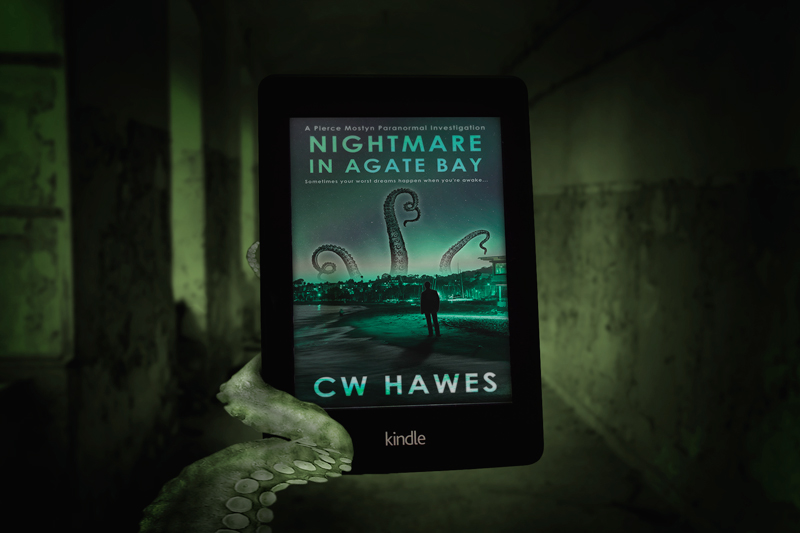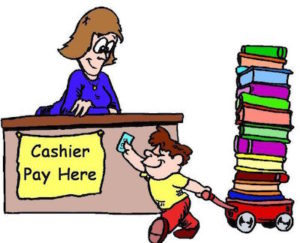
I was surprised to learn I don’t own my ebooks. And neither do you. I know that’s no surprise to most of you. However, I’ve always been a late bloomer and I just came to the realization this past weekend that I don’t actually own my ebooks.
How did I come to this revelation? My wife and I are preparing to move and I was looking at all my books and taking mental inventory if I wanted to move all of them. Suddenly my mind made the leap to my ebooks. How do I resell the ones I don’t like or have no further use for? The answer I came to was I can’t.
Further investigation revealed that I don’t buy ebooks, and Amazon, Apple, Kobo, Barnes & Noble, don’t sell them. I am buying a lifetime use license, in effect. And at present there is no mechanism for me to resell the license. When Amazon, et al, sell me the license it is with the understanding I won’t resell.
So what do I do with all the ebooks I no longer want. I have dozens that I’ve read or started to read and don’t like. Sure I can delete them. But that is like throwing a five dollar bill in the toilet and pulling the lever to flush it. Why on earth do I want to do that?
The short answer is, I don’t. But right now, I’m stuck with all those ebooks I no longer want. Unless I just flush them down the toilet.
Some people have made the argument that buying an ebook is like going to the movie theater. If I don’t like the movie, I’m just stuck with a bad experience. The same with ebooks. I’m just stuck with a bad book.
Most young people, it seems, don’t find this strange. I think this is because the entertainment industry has brainwashed them (because they grew up with all this digital content) into thinking that reselling digital content is wrong. But how is digital content any different than a paperback book? There is no difference, really. It’s all content.
Oh, sure the argument is made that books are fragile and deteriorate. Which is hogwash. I have perfectly readable books that are over a 100 years old. However, I have all manner of digital content I can no longer use because I no longer have the readers to read it. Digital content is extremely fragile.
Just think about what happens when mobi and epub books can no longer be read. And since technology is rapidly advancing, that could be in my lifetime — and I’m 65. Remember floppy discs?
What guarantee do I have that my latest tablet will let me read the old digital content? I have none. Because someone somewhere will probably want to make money to convert my old books into the new formats. And if publishers want to convert their old digital format content to new formats, that will be up to them. If they don’t, that content is lost and gone forever. Just think of all those books, that are ebooks only, and they don’t get converted. Gone. At least with paper, they still exist. All the books. The good, the bad, the ugly.
So the argument that digital files don’t deteriorate is misleading. They might simply become unreadable. Which is tantamount to deterioration. It has the same end result.
Now what to my wondering and searching eye should appear? But that Amazon (as of at least 2 plus years ago) is working on creating a used ebook market. And in 2014, a Dutch court ruled that Dutch company Tom Kabinet could continue to resell digital content because the company actually was operating in a gray area of the law.
This is how it could work if Amazon created a used ebook market for Kindle. I have an ebook I no longer want. I offer it for sale in the used marketplace. When I get a buyer, Amazon takes a cut of the sale price — and may pass a cut onto the publisher, as an inducement to get their agreement to resell — and then deletes the item off my Kindle and transfers it to the new owner of the use license. In effect, I’m selling my use of the book to someone else.
Personally, I like this idea. The main argument against a used ebook market is that it will drive down the cost of new ebooks. But I don’t see the Big 5 lowering book prices simply because there are libraries and used bookstores. So I’m inclined to think the argument is a non sequitur that ebook prices will fall by force if there is a used market. After all, new books have to be sold for there to be used books.
As a publisher of my own content, I would get paid for the sale of the new book AND get a cut of the resale price. To my mind, that is a win-win. Sure I wouldn’t get the new book price on the resale, but maybe that person wouldn’t buy my book new to begin with. But if they buy my book used and like it, I could reap benefits down the line.
I hope Amazon goes through with this project. I think it will benefit readers immensely. And, if publishers get a cut of the resale price, it will help indie author-publishers as well.
As always, comments are welcome; and, until next time, happy reading!
Share This!